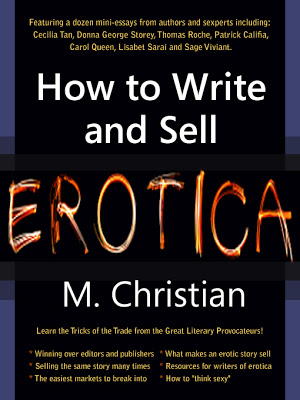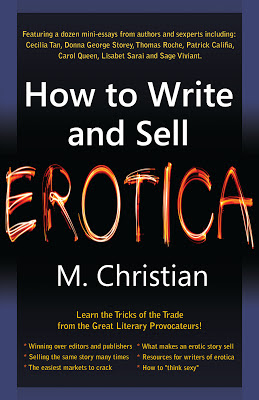
“Many people hear voices when no-one is there. Some of them
are called mad and are shut up in rooms where they stare at the walls all day.
Others are called writers and they do pretty much the same thing.” –Margaret Chittenden
Maybe it was because of a
recent birthday – thank you very much,
that’s very kind – or perhaps it’s because I just realized that I’ve been
at this, being a ‘professional’ author for over 20 years – shocking, I know – or possibly it’s because of a few …. (ahem)
sad experiences recently but I want to revisit something I’ve said before.
I really wonder about
writers. Okay, internet, let’s
hear what you have to say: artists, musicians, actors … how to you treat your
fellow creators? I used to have a
wonderful roomie who was a musician.
We used to chat all the time about this, that, and other things but a
lot about how even though there’s a sense of competition among his fellows
there was also a lot of camaraderie: he’d come home full of bright energy from
playing for hours and hours with other musicians … just jamming.
Meanwhile I’d spent the night
struggling with getting a stubborn story to cooperate, but mostly dealing with
one insanely arrogant writer after another demanding they receive special
treatment (oh, as a matter of transparency, I work as an editor and a publisher
in addition to trying to deal with my own writing ‘career’). This all came to a head when I realized
that for those two decades of being a published about I currently have only a
dozen or so fellow authors I consider to be ‘friends’ (and Facebook doesn’t
count).
Sure – as a writer myself – I
can understand why … but that doesn’t make it right. Again, I’m not sure what it’s like to
be a painter, actor, photographer, musician, or victim of any other creative
pursuit, but writing is damned hard: we
get little or no respect, no money, and everyone and their Great Aunt Maude
thinks they can do it as well. Our
years of work, the care and concern we put into our stories and novels, are ignored
unless we sell something – and then only if it makes millions – or if you take home
some pretty little trophy. If you
have a day job – and every writer out there does, and if they aren’t then
they’re either lying or a member of the rare 1% of writers – you know the
deafening silence that comes when you mention finishing a work.
But what’s worse is that far
too often it seems that the greatest barrier every writer must face … are
other writers. Like said, it’s understandable … but not excusable: we get our
teeth bashed in, our souls crushed, our work ignored – or slammed by trolls –
and so, wounded, we try to bolster our scarred egos by wrapping ourselves in a
cloak of supposed superiority.
Write erotica? I’m better than a pornographer. Write science fiction? I’m better than a romance writer. Write romance? I’m better than a thriller writer. Write thrillers? I’m better than a science fiction
writer. Have 5,000 Facebook
‘friends’? I’m better than someone
with none. Won an award? I’m better than anyone who hasn’t. Write for a blog or site? I’m better than anyone who
doesn’t. Have an agent? I’m better than someone who doesn’t have
one. Write a novel? I’m better than anyone who hasn’t. Sold to a ‘big’ publisher? Then I’m better than anyone who
hasn’t. Sold a book for five
figures? Then I’m better than
someone who hasn’t. A
professional? Then I’m better than
someone who hasn’t sold a word. Become
a ‘name’? Then I’m better than anyone
who isn’t.
It’s pathetic.
No, it’s fucking pathetic.
Oh, I’ve heard all the lame justifications
for this arrogance: if I treated everyone equally then I’d never have time to
write, that everyone has to earn their stripes, that you should take public pride
in your accomplishments. But
that’s exactly what they are: excuses.
The bottom line isn’t taking time, or the fear of becoming a full-time
mentor or support system. The
awful trust is that treating other writers poorly makes weaker authors feel
more important.
Like said, I understand it –
and, I’m ashamed to say I’ve fallen victim to be on more than once
occasion. But that doesn’t mean
I’m not aware of it – as well as despising myself when I do it.
But it doesn’t have to be this way.
The idea of basic human
kindness aside … actually, I should just stop there: why shouldn’t you help
other writers? Answer emails, try
to help as much as possible, don’t treat others as less than what you are,
offer opportunities, be inclusive, don’t become cliquish, don’t ask for special
treatment … we are all in this
together.
Okay, so you want a pragmatic
reason? How about this old
chestnut: be careful of who you step on while you’re moving up – because you’ll
be meeting them on the way down.
Every writer begins the same way, which means that not only do we all
share the same pain and frustration but that that annoying little upstart you’re
dismissing could very well be the person who be in a position to do some
tremendous professional good, or – even better – become a true and wonderful
friend.
Money does not equal skill,
awards are pointless, popularity comes and goes … if you write, if you work
hard on your craft, and if you have the incredible bravery to actually send
your work out into the world then you deserve respect. If you don’t
get it from other writers don’t blame yourself or your work: you’ve just
encountered the shameful side of the world of professional writing.
But don’t let them beat you
down and certainly don’t roll that shit downhill. Yes, wish those that treat you poorly into the cornfield …
but keep your door open, and offer the hand you wish you’d receive. I’m an atheist but I do believe in the
maxim “Treat others the way you’d wish to be treated.”
This can be a monstrously hard
thing to do – being a writer – but it
doesn’t have to be.
And always, always, always remember that no writer is better
than any other … and if you disagree with that then face it: you’re part of
the problem.











